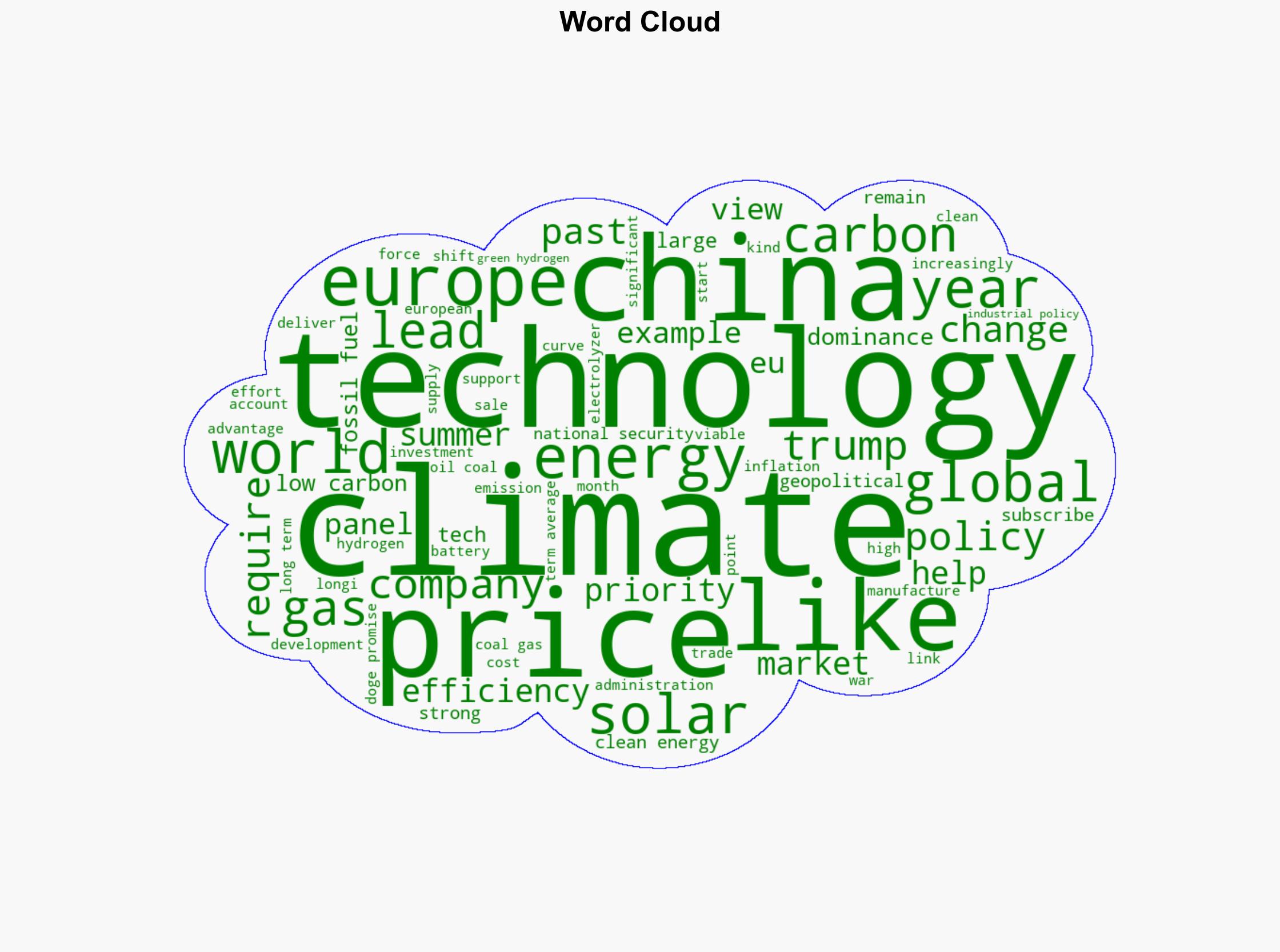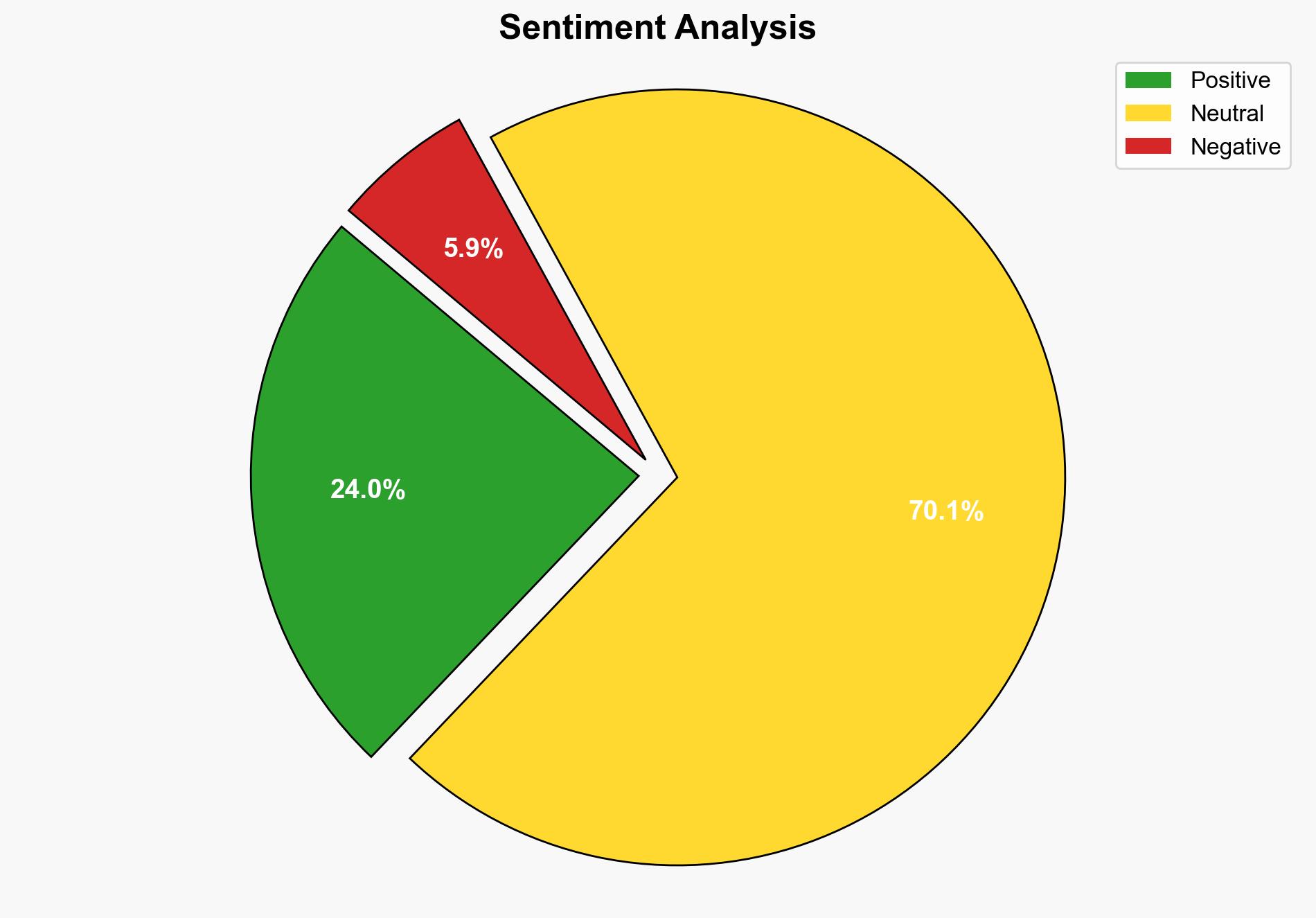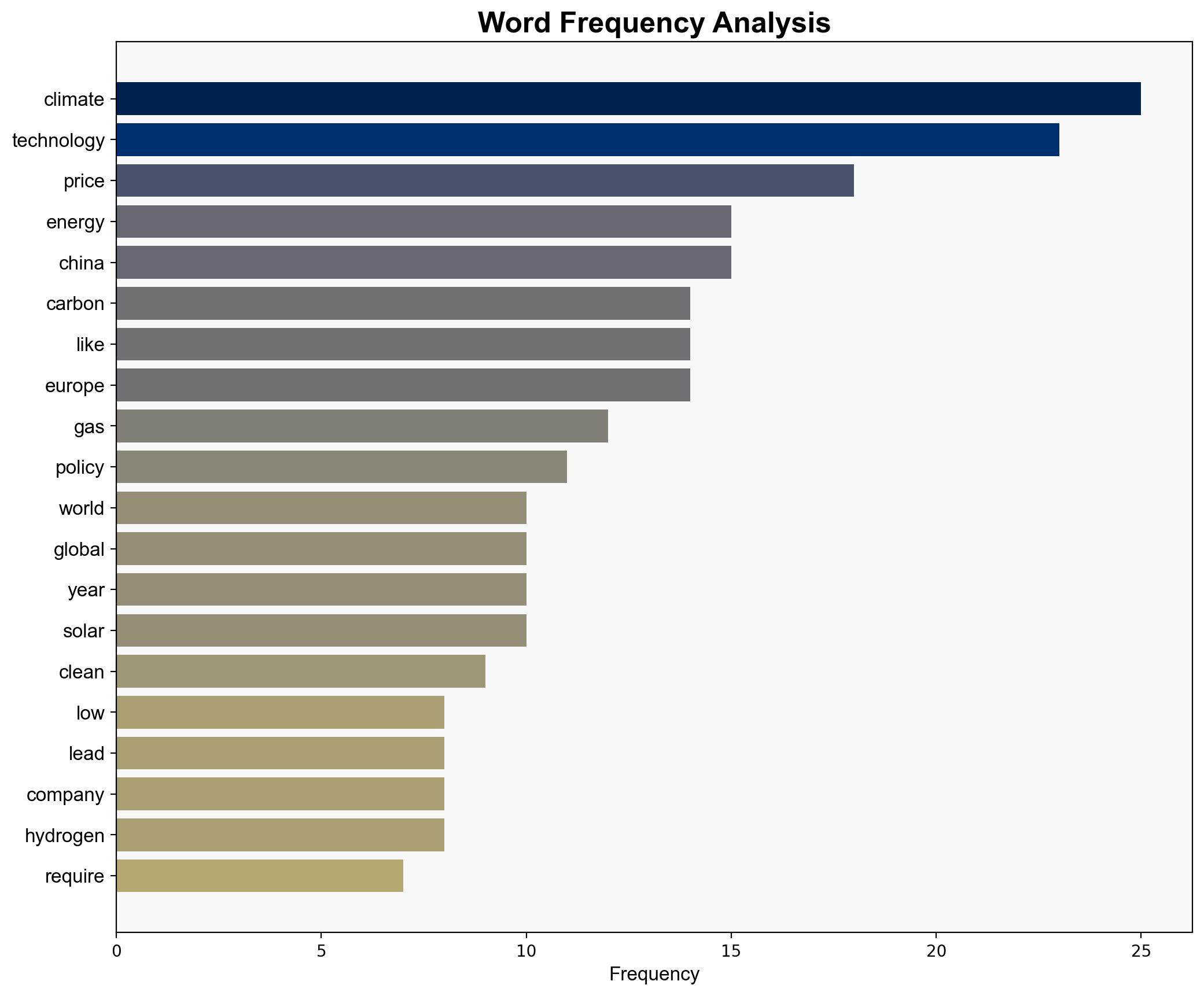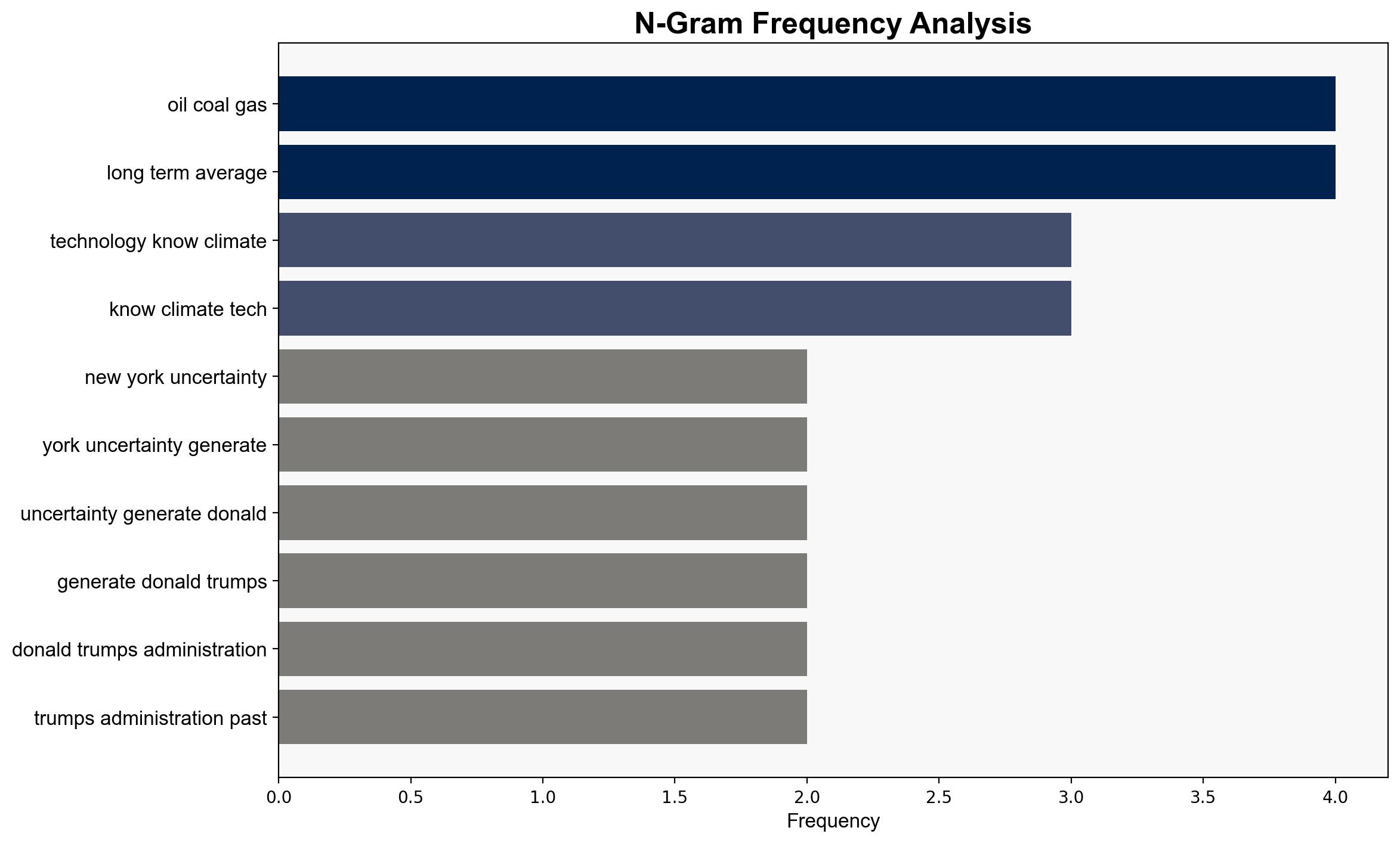Climate Security Is Energy Security – Project Syndicate
Published on: 2025-08-11
Intelligence Report: Climate Security Is Energy Security – Project Syndicate
1. BLUF (Bottom Line Up Front)
The most supported hypothesis is that geopolitical developments and economic forces are driving a shift towards clean energy technologies, with climate security increasingly intertwined with energy security. Confidence level: Moderate. Recommended action: Enhance investment in clean energy technologies and reform power markets to ensure energy affordability and security.
2. Competing Hypotheses
1. **Geopolitical and Economic Forces Drive Clean Energy Adoption**: The transition to clean energy is primarily driven by geopolitical tensions, such as the Russia-Ukraine conflict, and economic factors like fossil fuel price volatility. This hypothesis suggests that energy security concerns are accelerating the adoption of climate technologies.
2. **Climate Policy and Technological Innovation Propel Transition**: The shift towards clean energy is mainly due to proactive climate policies and technological advancements, with geopolitical factors playing a secondary role. This hypothesis emphasizes the role of government initiatives and innovation in driving the energy transition.
3. Key Assumptions and Red Flags
– **Assumptions**:
– Hypothesis 1 assumes that geopolitical events directly impact energy policy decisions.
– Hypothesis 2 assumes that technological innovation and policy are sufficient to drive the transition independently of geopolitical influences.
– **Red Flags**:
– Over-reliance on geopolitical factors may overlook the potential of technological breakthroughs.
– Ignoring geopolitical influences could underestimate the urgency of energy security concerns.
– **Blind Spots**:
– Potential underestimation of the impact of market dynamics on energy transition.
– Lack of consideration for the role of private sector investments in clean energy.
4. Implications and Strategic Risks
– **Economic**: High fossil fuel prices could lead to inflationary pressures, impacting economic stability.
– **Geopolitical**: Energy dependencies may shift, altering global power dynamics and alliances.
– **Technological**: Rapid advancements in clean energy technologies could disrupt existing energy markets.
– **Psychological**: Public perception of energy security may influence policy decisions and consumer behavior.
5. Recommendations and Outlook
- Invest in clean energy technologies to mitigate reliance on fossil fuels and enhance energy security.
- Reform power markets to pass savings to consumers and encourage adoption of renewable energy.
- Scenario-based projections:
– **Best Case**: Successful integration of clean energy technologies leads to stable energy prices and enhanced security.
– **Worst Case**: Continued geopolitical tensions exacerbate energy price volatility, hindering economic growth.
– **Most Likely**: Gradual transition to clean energy with intermittent geopolitical disruptions.
6. Key Individuals and Entities
– Donald Trump
– Elon Musk
– BYD (China’s leading carmaker)
7. Thematic Tags
national security threats, energy transition, geopolitical dynamics, economic stability





